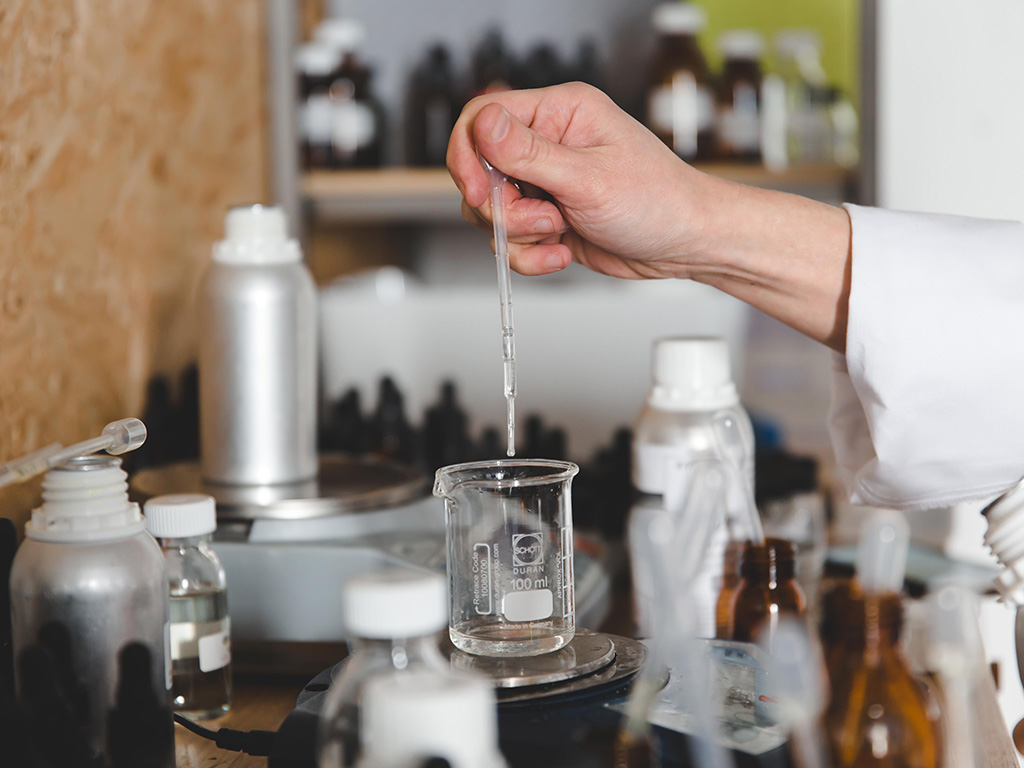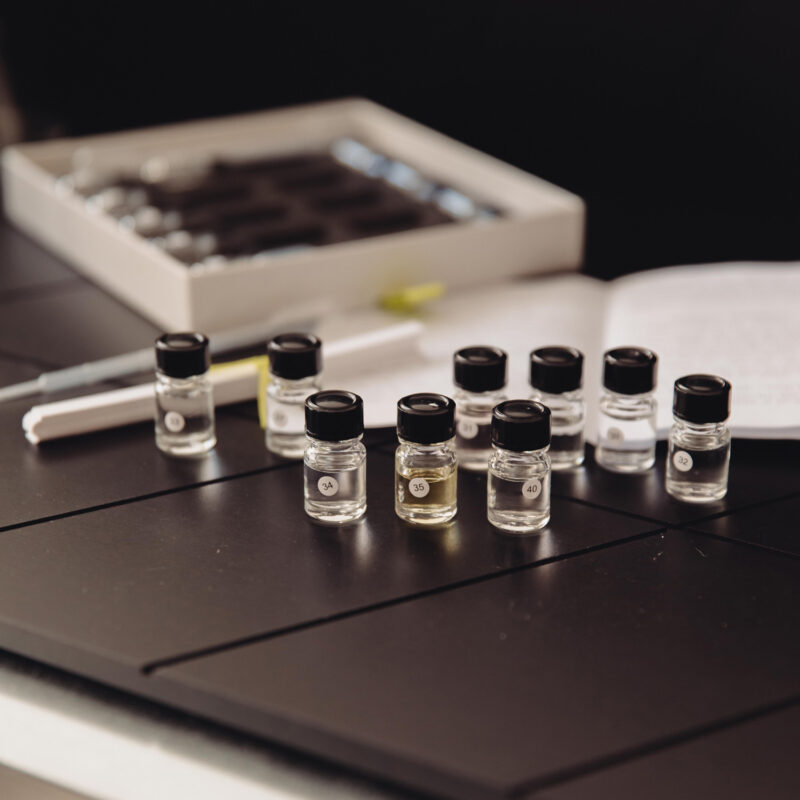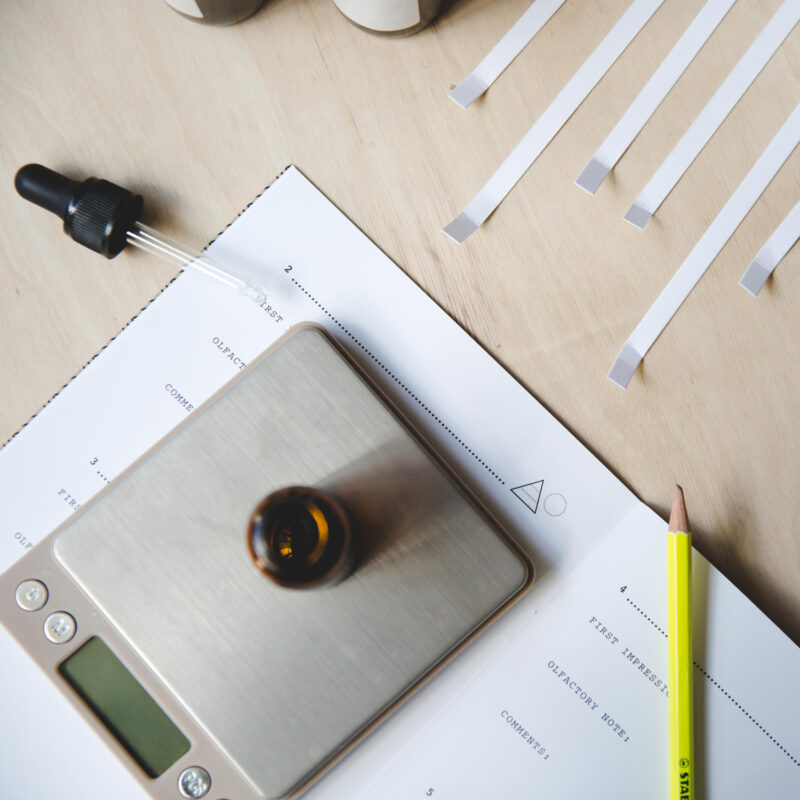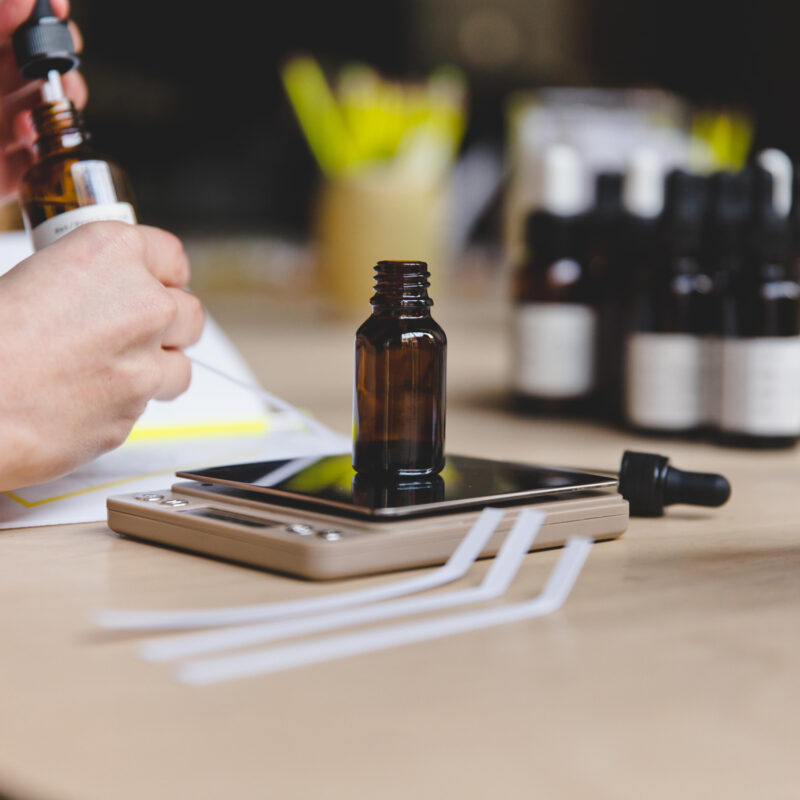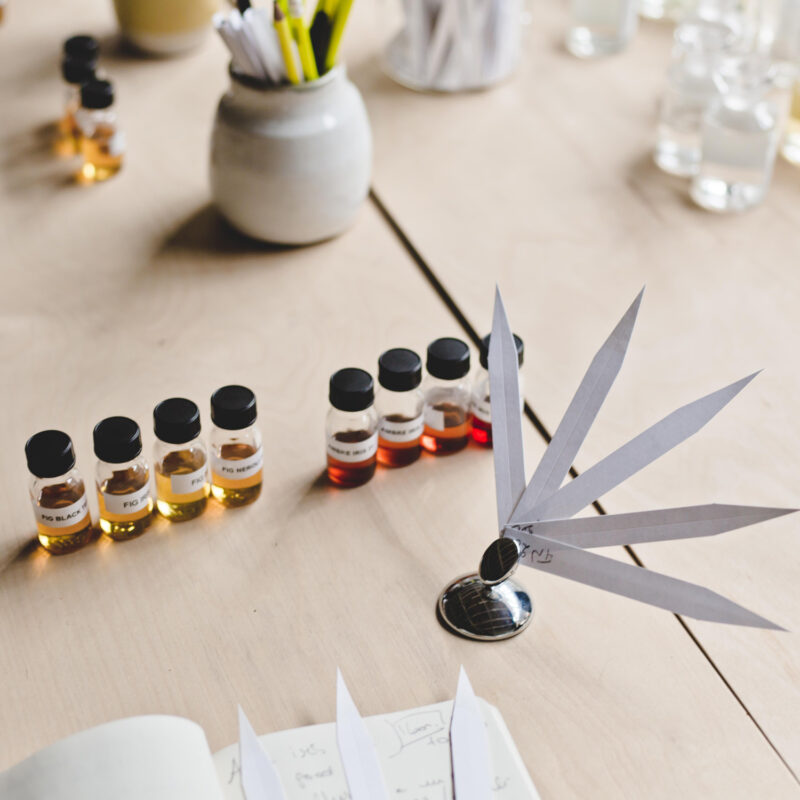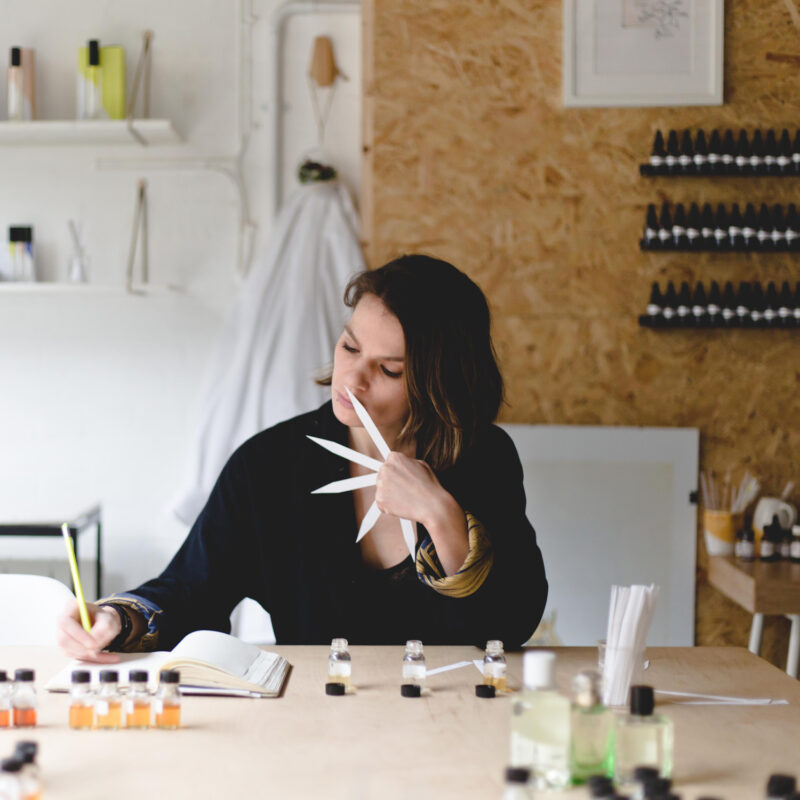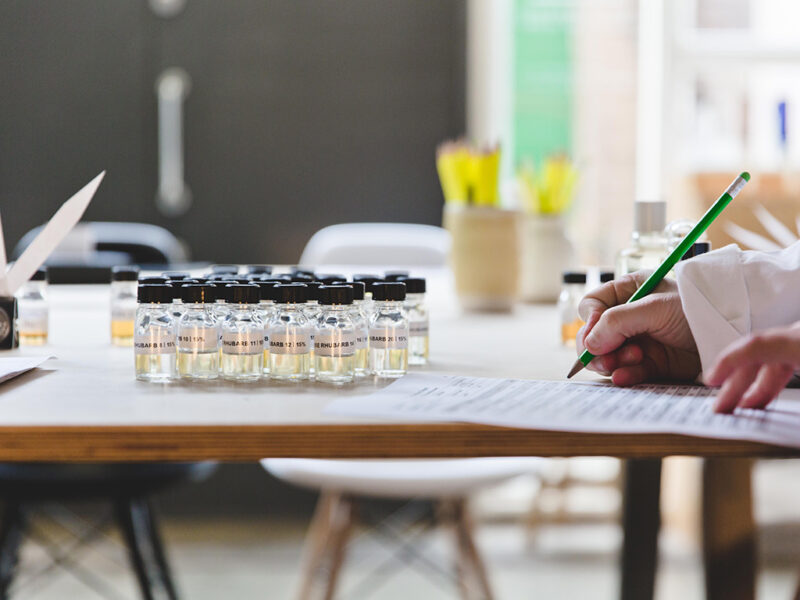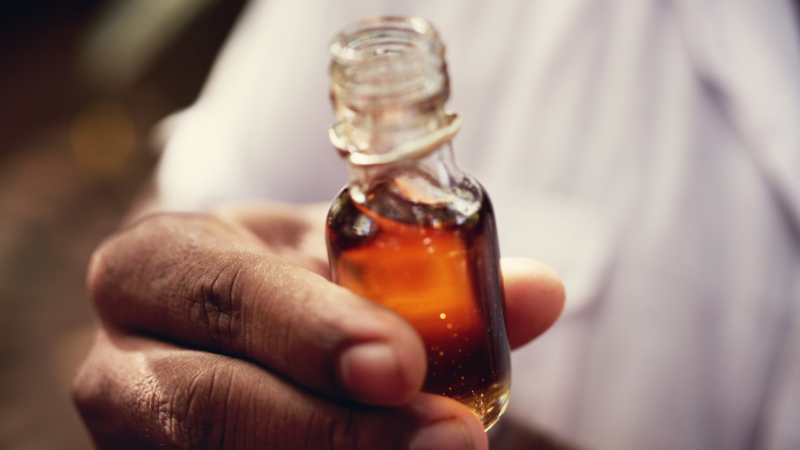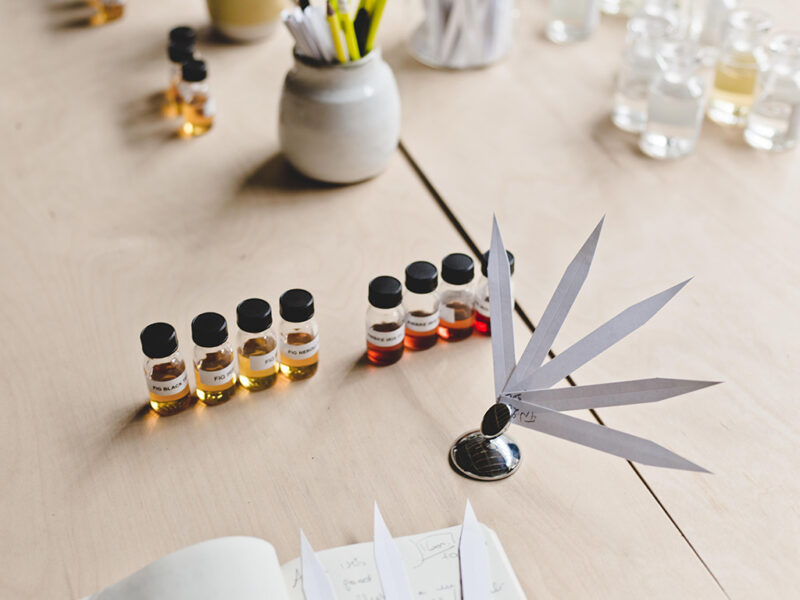Want to make fragrances at home but aren’t sure how?
Follow our easy ‘how to make perfume : a beginners guide’.So you want to embark on the path of fragrance creation. That’s great! For some the task can seem a little daunting, but don’t worry, our step by step guide is here to get you started and will help you make your nose happy. Here we go…
STEP 1: Get yourself a scale
Get your hands on a small scale – never use drops! Measuring your ingredients in grams is a lot more accurate when you want to make and recreate your formula.
Drops may seem easier, but it’s very hard to get the same amount of ingredient in every drop. Before you know it, you can end up with a rather interesting formula that will be quite difficult to tweek and difficult to recreate!
You don’t need to invest in an expensive Lab scale to start of with. A small 0.01gram precision scale will be enough to start and you can upgrade to a 0.001g precision scale later. You’ll find plenty of mini scales online from £20 to £40, but if your budget allows, you’ll find a professional scale at an entry price of around £400-500.
Join our FREE perfumery class!
Get a taste of perfume creation through this 3-part video miniclass! We’ll take you through:
- How to smell, describe and memorise a perfume ingredient
- How to begin in perfume creation and get blending at home
- The most common questions of perfumery
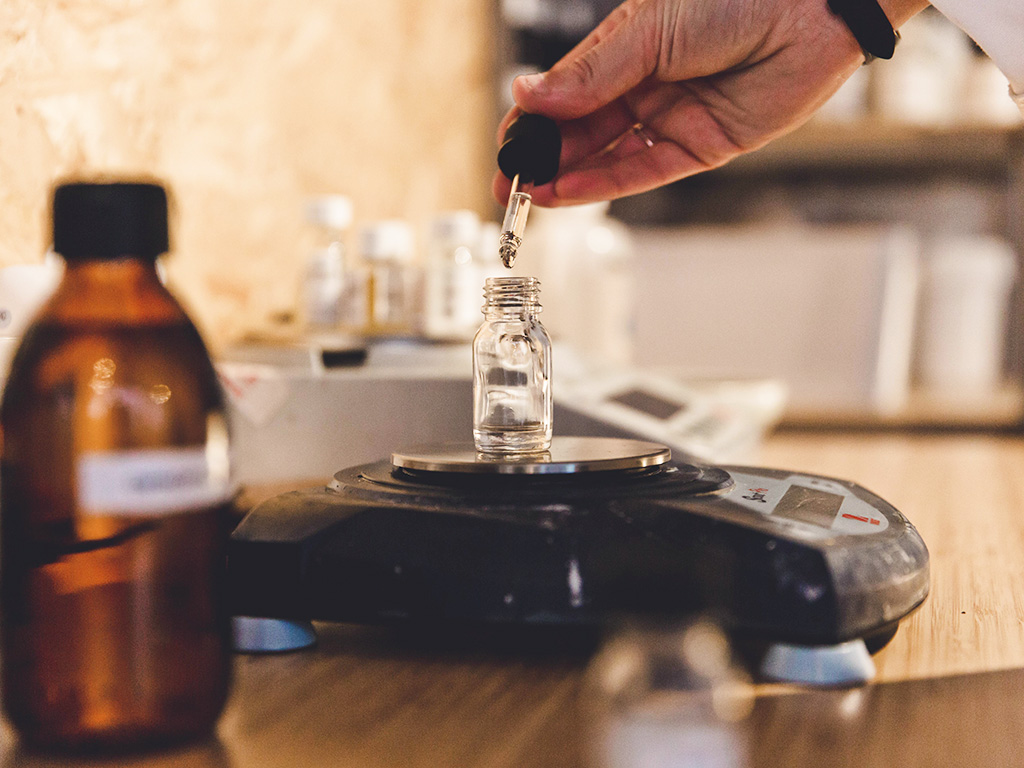
STEP 2: Source your ingredients from reliable companies
Get yourself some good ingredients: industry-grade standard perfumery ingredients are hard to find when purchased in small quantities so this step will require a bit of research, especially if you want to ensure you get ingredients of the highest quality.
At EPC, our activity as perfumers allows us to source the best ingredients you can possibly find, from reputable suppliers such as IFF-LMR, Symrise and Firmenich. We have put together a few ingredients box sets which allows you to build your ingredient collection up to 60 of the most used perfumery raw materials. These ingredients have been specially selected to get you started, and more importantly, are already diluted in perfumer’s alcohol, so that you can ensure a more satisfying result, even at beginner’s level.
Discover our perfumery material
We’ve put together ingredient sets including high quality ingredients – both natural and molecules – and sourced from Grasse and from all around the world. This kits have been designed to help you make your fragrance and will let you smell some key perfumery ingredients before you invest in bigger quantities.
If you are not a professional fragrance maker but are more advanced with blending techniques, you’ll be limited on where to find reliable sources. Most fragrance ingredients suppliers such as the ones stated above will deal with companies only, however, we find a very good company that sell to the end consumers: Pellwall is an excellent source for pure raw materials.
Be careful though, if you are unsure where to start, we advise against buying random ingredients as you may find yourself spending a lot of money with little satisfying results.
There’s a big focus at the moment on natural ingredients, but don’t forget to explore molecule options as well as natural extracts (they’re essential to the perfumer organ!). If you can, keep your ingredients chilled in a fridge to ensure their longevity.
Would you like to learn perfumery and create like a pro?
Our EPC Academy is open to students from all around the world! Join our online perfumery courses and learn these techniques following our videos and tutorials guided by experienced perfumers
Explore our perfumery online coursesSTEP 3: How to formulate
Think about your brief first
Now comes the creative part. When you’re at this stage, really think about what you want to create, this is called a “brief”. What type of scent do you want to make, is it floral or woody or a combination of both? Do you want to make a light, airy fragrance or a deep, sensual scent? Do you want your fragrance to star one or two single notes, or more (i.e.: Rose or Cedarwood)? Think around all of these things and more, or simply about a creative story or memory you’d like to achieve.
A fragrance is a complex formula that can include dozens of ingredients, but we’d recommend to train with a combination of just a few (10 or less).
There is no book on formula, perfumery is a knowledge that gets passed on from perfumers to perfumers and with a lot of hard work and dedication.
How to write a perfume formula
Spend a bit of time at this stage so you’re focused on your end perfumery goal. A formula is typically written out of 100% (or out of a total of 1,000 or 10,000 when you are more advanced). Keeping a clear consistent total allows you to understand the impact of each individual ingredient within the overall formula as well as helping when it comes to reworking your formulae.
Top tip: Always write your formula down – we’d hate for you to loose the formula that made you irresistible!
Learn the basics of perfume formulation
Join a perfumery workshop at EPC London Lab
Step 4: Evaluate and rework your formula
Smell on Scent Strips not from the bottle:
Once you’ve weighed your first formula, give it a gentle shake and evaluate the result on a scent strip (the paper types you find in fragrance retailers). Scent strips come in all shapes and sizes : the most commonly used have square ends (good for smelling ingredients) or pointy ends (good for smelling perfumes). You can start off with these standard scent strips. If you get pointy scent strips, dip your scent strip on the pointy end and smell it without touching your nose.
The rework stage:
Once you’ve assessed what’s good and what’s less good, you’re ready for a rework of your idea by tweaking the formula. And so on… Until you’re happy (sometimes it can take hundreds of trials to get it right, so be patient!).
STEP 5: Dilute your ingredients or composition
Perfume making at home
Find your signature blend with our perfume Creation Sets
Creation Set + Blending Guide
Choose your Creation Set (a trio of your favorite fragrances) and experiment blending at home with our step-by-step illustrated guide
Discover the Creation Sets2 Creation Sets + Live Online Consultation
Receive the full collection of Creation Sets (6 Essential Eau de Parfum) at home and get your online consultation with one of our perfumers for tailored guidance
Custom fragrance with a perfumerRemember to have fun
- Don’t be afraid to try, try, fail and try again – perfumery is a long road of trial and error.
- These steps are only the start of a long learning journey into this fascinating subject… Books in formulation are a rare find and most perfumers will have trained for years in a perfumer school or within the industry.
- At EPC, we believe having an untrained nose shouldn’t prevent experimentation with fragrance and welcome an approach of perfumery at a hobby level too!
- Perfumery is where science meets art. Be logical. Be intuitive, follow your nose, the ingredient that smells extremely strong just put a trace, otherwise there is good chance that it will overpower your blend.
Last point: remember maceration plays an important part!
Leave your created fragrance for a day or so to allow it to settle and mature in it’s self. Some creations may change colour over time but this is normal and will rarely affect your scent.
Happy Experimenting!
